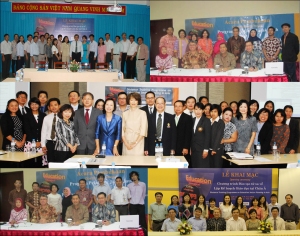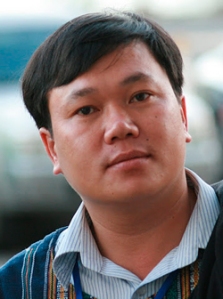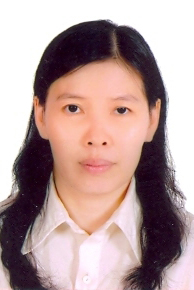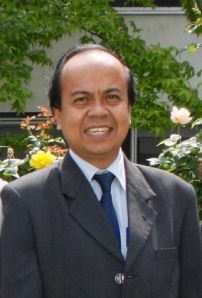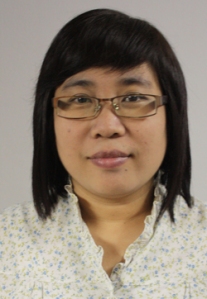Education Sector Planning in Asia
News
Press Release: UNESCO-IIEP equips teams in three Asian countries with new skills to manage the education systems of tomorrow
UNESCO’s International Institute for Educational Planning (IIEP) has built sustainable capacities at individual and institutional levels in Indonesia, Thailand and Vietnam through a distance training programme on Education Sector Planning
Paris (30 September 2013) – The training programme organized by UNESCO’s International Institute for Educational Planning celebrated its success today with a graduation ceremony. Launched in June 2012 – and implemented in collaboration with the University of Hong Kong’s Faculty of Education and sponsored by the JPMorgan Chase Foundation – the Education Sector Planning (ESP) was delivered in partnership with six renowned national training institutions in the three participating countries.
Over a period of 11 months, the 67 participants (60% women) who completed the programme learned the main techniques for education sector plan preparation and review. They acquired the necessary skills to prepare critical and effective educational policies to improve equity, inclusion, and quality of education in the region. “The programme”, said a participant from Indonesia, “is very useful, gives wider understanding and enables interacting with colleagues from other countries and discussing with international experts from IIEP. It was definitely a very good experience”.
The programme outcomes were very encouraging, with most participants already applying what they learned in their daily work. Indeed, employers confirmed that the training had a positive impact in the participants’ professional behaviour and skills. They also expressed the desire that that this kind of training be repeated in the future, saying it would highly benefit other employees within their organization.
The partnership with local training institutions also proved to be effective in strengthening the national capacities in educational planning. Both local team coordinators and heads of partner institutions agreed that the programme had a positive impact on their institutions and are willing to renew the experience. Most partner Institutions are planning to adapt and use the programme’s content to train additional local professionals working in the education sector, or are already implementing courses based on the ESP. “The ESP programme has been a very good reference for us to adapt our current courses which we are currently providing for administrators at school levels”, said Tran Phuoc Linh, Programme Coordinators for the Institute of Educational Managers in Ho Chi Minh City.
The successful initiative benefited from a triple public–private partnership: IIEP-UNESCO contributed with its worldwide expertise in educational planning and management; the University of Hong’s Kong Faculty of Education provided regional knowledge; and the JPMorgan Chase Foundation, by its generous funding, allowed the project to become a reality.
To learn more about the programme: https://esp3asia.wordpress.com
About IIEP
The UNESCO International Institute for Educational Planning (IIEP) was created in 1963. It supports Governments in planning and managing their education systems so that they can achieve their national objectives as well as the internationally agreed development goals. IIEP develops sustainable educational capacity through training, research, technical assistance, networking, and information sharing.
About The University of Hong Kong
The University of Hong Kong is a leading international institution of higher learning in Asia. Its Faculty of Education is an integral part of a comprehensive, research-intensive, international, English-medium university in the Hong Kong Special Administrative Region of China. At the same time, the Faculty is a regionally and globally engaged educational hub and aspires to lead the study and practice of education, to influence public policy and improve community life through education, and to nurture graduates who are passionately committed to their professions.
About the JPMorgan Chase Foundation
JPMorgan Chase strives to be a catalyst for meaningful, positive and sustainable change in high-need neighbourhoods and communities across the globe. The firm aims to create Pathways to Opportunity – a holistic approach to ensure that individuals have access to the knowledge, skills, resources, and capital they need to secure their futures and compete in the global economy. In 2012, JPMorgan Chase and its Foundation gave more than $190 million to thousands of non-profit organizations across 42 states, the District of Columbia, and 37 countries around the world. The firm also actively encourages employees to support individual philanthropic interests through employee gift matching and volunteer programs. Over the years, the firm’s unwavering commitment to supporting individuals, families, and organizations has generated positive change in communities around the world.
Press contact:
Maxime Bouquet (M.)
m.bouquet@iiep.unesco.org
+33 1 45 03 77 66
The programme in the press
Following the workshop in Hong Kong, here are some articles mentionning the event :
>> University World News : Better planning and data needed to raise HE quality
>> Wen Wei Po (in Chinese)
>> United Christian College, Kowloon East, Hong Kong : Visit by Educators from Southeast Asia
The regional workshop has begun
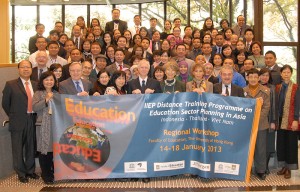
Professor Stephen Andrews, Dean of Education of HKU (first row left 3); Professor Mark Bray, UNESCO Chair in Comparative Education (first row left 6); Ms Jean K. Sung, Executive Director & Manager, Global Philanthropy Asia-Pacific of J.P.Morgan (first row right 6); Ms Gabriele Gottelmann of IIEP (first row right 5); our honorable guests and 73 education professionals from Indonesia, Thailand and Viet Nam.
The Faculty of Education of The University of Hong Kong (HKU) held on January 14 the Opening Ceremony of the Regional Workshop.
Ms Gabriele Gottelmann of IIEP, Professor Stephen Andrews, Dean of Education of HKU, Professor Mark Bray, UNESCO Chair in Comparative Education and Ms Jean K. Sung, Executive Director & Manager, Global Philanthropy Asia-Pacific of J.P.Morgan officiated the Opening Ceremony with the presence of 73 education professionals from Indonesia, Thailand and Viet Nam.
Ms Gottelmann stated that the implementation of the Regional Workshop is a national and international commitment to reach a more diversified people with different backgrounds. Being echoed by Professor Bray, the initiative is to globalize the university by bringing the professionals from the three countries to Hong Kong to enjoy learning at HKU.
To be a collaboration amongst a public sector (IIEP-UNESCO), a non-profit-making educational institution (Faculty of Education, HKU) and a private sector (J.P. Morgan) for education professionals with different nationalities, experience and cultures, Ms Sung raised a critical question, “Why education? Education is a backbone of the future”.
Professor Andrews may conclude well about the ultimate aim of the programme, “Our vision is to lead the study and practice of education, to influence public policy and improve community life through education, and to nurture graduates who are passionately committed to their professions. Central to the realisation of that vision is the notion of engagement with the community – here in Hong Kong, in Mainland China, regionally, and globally”.
Subsequent to the Opening Ceremony, 73 education professionals will receive and benefit from a one-week workshop at HKU from January 14 to 18, 2013.
For media enquiries, please contact Ms Queenie Wong, Development and Communications Manager, Faculty of Education, HKU (Tel: 2219 4270 / mobile: 9220 5840 / fax: 2540 6360 / email: qlpwong@hku.hk
>> Click here to view the e-version of the press release
>> Click here to see some photos
All participants meeting in Hong Kong
For the first time since the beginning of the programme in June 2012, all participants and coordinators (coming from the three participating countries and the six partners’ institutions) will gather together for a regional workshop in Hong Kong, organized by the Faculty of Education of the University of Hong Kong (HKU).
In addition to the provision of courses on the use of projections and scenarios in the preparation of education sector development plans and the opportunity to discuss and consolidate their draft country plan documents (that they are required to submit at the end of the distance programme), this will be a wonderful occasion for participants and partner institutions to exchange and share their country experiences.
Participants are eager to meet each other. As Mrs. Nguyen Lan Huong, from Viet Nam, said in a recent interview: “We also look forward to the one-week study visit to the Hong Kong Institute of Education, where we will have a chance to see in person other participants and actually activate our professional network for the long-term benefit” .(Click here to read)
This week will, without a doubt, strengthen the regional cooperation in educational planning and management.
The five-day workshop will start with an opening ceremony on Monday, 14 January, at 9:00 am, in the Foyer, Rayson Huang Theatre, the University of Hong Kong. It will gather representatives of the three organizing institutions: Ms Gabriele Gottelmann, head of the Training Unit at IIEP; Professor Stephen Andrews, Dean of Education, HKU; Professor Mark Bray, UNESCO Chair in Comparative Education, HKU; and Ms Jean K. Sung, Executive Director & Manager, Global Philanthropy Asia-Pacific of J.P. Morgan. Other local partners and institutions will also attend the ceremony
Experiencing the programme: participants and coordinators give their feedback and share their views (7/7)
About half of the training programme has been completed by participants in Indonesia, Thailand, and Viet Nam. IIEP is taking this opportunity to pose questions to some participants and coordinators.
Last to be published: Mr. Tran Phuoc Linh, Team coordinator of ESP Programme in Ho Chi Minh City (Viet Nam) and Specialist, Division of Science, Technology, and International Relations at the Institute of Educational Managers, Ho Chi Minh City (Viet Nam)
—————————
You have been coordinating the ESP Programme for the past 6 months. Could you please tell us about your role as Team Coordinator?
T.P.L: As a group coordinator, I have played different roles in running the programme. First, I worked as a communicator. I have been the bridge between my institution, the participants’ organizations and the ESP Team, as well as among the participants. Second, I worked as a planner. Whenever a new instruction was released, I made a detailed plan about the time and venue of the coming meeting, the duty of each participant in preparing for the meeting, and other administrative issues. Third, I worked as an “instructor” or “lecturer”. Usually, I had to read the materials very carefully to make presentations at the beginning of each meeting. These presentations covered the key points in each unit/section, including the objectives, outcomes, main points, concepts and especially practical current issues in Viet Nam which may be involved in the lessons. Participants found these presentations and lectures very useful to review what they had read before the meetings. Fourth, I worked as a facilitator at the group discussion. Whenever we had to prepare a group report or discuss a certain issue, we shared ideas by open discussions. I facilitated these discussions so that everyone could join in actively and effectively. At the beginning of the meetings, I let each participant share their feelings and experience in reading the text or simply the difficulties in pursuing the programme. This helped create more morale for the team. Fifth, I worked as an “editor”. Usually, each participant was responsible for drafting a group report prior to the meeting. Then we worked together to make a complete report at the meeting, which usually took place on Friday. During the weekend, I edited the report in terms of language usage, format, and other aspects of the report as instructed before submission. In short, as a local coordinator, I have tried my best to support and lead the team so as to reach the targets as much as possible on behalf of the IIEP ESP team.
Could you briefly explain why your training institution is participating in this programme? How do you think this programme has been beneficial for your institution?
T.P.L: My Institute is major training centre which is experienced and prestigious in providing courses in educational administration, including educational planning in southern provinces of Viet Nam. It is our honour to have been recommended by Mr Vice Minister to cooperate with IIEP in the implementation of the ESP programme.
The cooperation with IIEP on the implementation of the programme is a good chance for us in enhancing international relations in general and our relation with UNESCO agencies in particular. This cooperation also provides us a good chance to work with other partners in Viet Nam. Professionally, we benefit a lot from participating in the programme as we can integrate many parts of the programme into the curriculum and materials of the course in Educational Strategic Planning in our institute, which in turns benefits the educational agencies in our region. Besides, our staff can take this opportunity to enhance their language skills by working in the international contexts.
Participants just taken the first individual examination and have completed three out of the six training modules. How would you assess the progress made by participants so far? Do you have some concrete examples?
T.P.L: The performances of my team in the first three modules were above average and reached the expectations. In terms of engagement, most participants have tried their best to grasp the lessons and to learn new things from the course. In terms of the result of the group report, the team in Ho Chi Minh City needs to improve more so as to meet the expectations. Regarding the mid-term examination, as the UNESCO examination supervisor, Ms Sun Lei, could confirm, most participants were very serious in their active engagement in the revision workshop and tried their best to achieve high scores; nevertheless, the results of the exam might be not as good as we wished.
Experiencing the programme: participants and coordinators give their feedback and share their views (6/7)
About half of the training programme has been completed by participants in Indonesia, Thailand, and Viet Nam. IIEP is taking this opportunity to pose questions to some participants and coordinators.
Sixth to be published: Lisa Nindito, participant of the ESP Programme and Accounting Lecturer and Head of Division of business and management at the State University of Jakarta, Indonesia.
————————————————————–
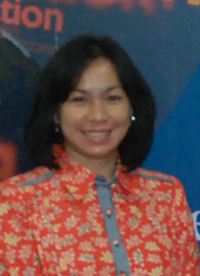
Lisa Nindito, participant of the ESP Programme in Indonesia
You have been taking part in the ESP Programme for the past six months. Could you briefly tell us what your expectations were when enrolling in this programme?
L.N: As a lecturer in a university with a strong pedagogical background, my intention when enrolling in this programme was to help me enrich my knowledge in educational planning and furthermore enable me to share it with my students in the class. It is also because of my interest in learning more about educational planning that I think is a very important tool to be applied in solving educational problems in the case of Indonesia, a developing country with a large population and multicultural backgrounds. I also thought that the educational planning would be an interesting new knowledge to learn, considering my accountancy science background.
You are completing the ESP distance programme while continuing to work at your job. Has the programme helped you in your day-to-day work? If so, how?
L.N: After studying three modules, I am now more confident in sharing my educational knowledge with my colleagues as well as my students. I was just appointed as the head of study programme in my department and now I am working on developing new curriculum with competency-based referring to national qualification frameworks. This curriculum should be applied by educational institutions in Indonesia and through collaboration with Ministry of National Education and Culture with the Ministry of Labor of the Republic of Indonesia.
I learned several theories about educational planning, concepts about quality and its dimensions, as well as about internal and external efficiency of education, and more, and these have helped me understand and develop an analysis of needs and programmes needed in our new curriculum that will best suit the needs of the industry.
Has this programme allowed you to enlarge your professional network? Has the cooperation with the other programme participants been helpful? If so, how?
L.N: Yes, I am very fortunate to work in a group of people who are very friendly and enthusiastic in learning and sharing knowledge together. Our group coordinator, Mr Hafid, has been very helpful in giving us explanations and guidance in our group discussion sessions. He always encourages us to learn more, to participate more, and to do work that will be useful for us as an individuals and as a responsible citizens. So far, this programme has helped me meet new great teammates in UNJ group (State University of Jakarta), new friends from the Ministry of Education and Culture group, as well as some very helpful personals from the UNESCO Office of Indonesia and IIEP in Paris. I am thankful for the opportunity given to me.
Experiencing the programme: participants and coordinators give their feedback and share their views (5/7)
About half of the training programme has been completed by participants in Indonesia, Thailand, and Viet Nam. IIEP is taking this opportunity to pose questions to some participants and coordinators.
Fifth to be published: Ms. Kessara Amornvuthivorn, participant of the ESP Programme and Program area manager, Innovative education at the Kenan Institute Asia*, Thailand.
——————-
You have been taking part in the ESP Programme for the past six months. Could you briefly tell us what your expectations were when enrolling in this programme?
K.A: When I applied for this programme, I expected to learn about good practices on educational planning and to learn the answers to the following questions: What aspects should be taken into consideration when conducting an educational planning? What are the procedures for a robust planning and analysing? How to ensure that the plan is rigorous and well justified? Besides learning about educational planning, I hoped to develop relationships with members of education communities. Studying in the same class with frequent interaction and exchange of ideas will increase our level of understanding of the roles and responsibilities each member has assumed in their organizations. This will lead to better understanding of our organizational roles in managing education. This better understanding and relationship will probably increase opportunities for future collaboration.
You are completing the ESP distance programme while continuing to work at your job. Has the programme helped you in your day-to-day work? If so, how?
K.A: I work in an NGO focusing on capacity building for schools and educational agencies in improving education. The knowledge and skills I’ve gained in educational planning has enabled me to develop a systematic plan taking into consideration both social and economic dimensions. Placing high importance on holistic and participatory approaches when conducting an educational sector diagnosis has helped me pay more attention to each subsector rather than the sector of interest alone. The reinforcement on engaging participation by different stakeholders has widened my perspectives on the importance of different players’ roles in the planning process.
I have learned a considerable number of educational indicators. In the past, my knowledge was limited to student outcomes and instructional quality. The programme has introduced me to diverse indicators related to measuring educational efficiency. I have learned about a number of indicators which I was not aware of when presenting the current situation analysis. All of these widen perspectives and have helped me develop a better plan and strategies when working with government agencies and private sectors to improve the quality of education.
Has this programme allowed you to enlarge your professional network? Has the cooperation with the other programme participants been helpful? If so, how?
K.A: The network that I have known from the programme is totally new contacts. I have known them by organizational names but have never been in contact with. During the group study, I have learned a great deal from these members. They have shared insights of the current education system which was new information to me. The relationship built from the programme will help me get them involved when I implement educational programmes in the future.
One person approached me and showed her interest to work with my institute. We had a conversation about the common principles we shared about the work and possibilities of how we could collaborate. She is interested in skill building for principals, which is a relevant area to my work. We plan to set up a meeting between management of our organizations within several weeks.
——-
* The Kenan Institute Asia is a Thailand-based, non-profit development organization working to promote results-oriented, sustainable development in Asia with an emphasis on the Greater Mekong Subregion. K.I.Asia provides project management, consulting, training, and research services for corporate, government and multilateral clients. Focus areas include entrepreneurship, business and economic development, education, public health, and corporate social responsibility.
Experiencing the programme: participants and coordinators give their feedback and share their views (4/7)
About half of the training programme has been completed by participants in Indonesia, Thailand, and Viet Nam. IIEP is taking this opportunity to pose questions to some participants and coordinators.
Fourth to be published: Ms. Ngo Thi Kim Phung, participant of the ESP Programme and statistician and analyst in the Department of Education and Training, An Giang Province, Viet Nam
—————–
You have been taking part in the ESP Programme for the past six months. Could you briefly tell us what your expectations were when enrolling in this programme?
N.T.K.P: As a specialist in a Department of education and training, my daily job is collecting data from sub-sectors, analysing the data and giving advice to my leaders to build an educational plan for the province (adapted to the country’s plan). When enrolling in this programme, I hoped that I could improve my knowledge about education planning, to have a logical thinking about education planning. I would be able to explain why I must do this or not do that when making an educational planning. I could understand more clearly the main stages of educational planning. I would envisage the main actors, the tools involved in the preparation and monitoring of educational plans. From what I could learn, I would compare with my experiences and that would improve my professional competence day by day.
For the past six months, I have learned many interesting things about educational planning such as the theories, approaches, statistics, ESD… What I have learnt from Module 1 to Module 3 of the programme makes me excited about the next steps of the programme because educational planning is a closely systematic job that I have just known half way.
You are completing the ESP distance programme while continuing to work at your job. Has the programme helped you in your day-to-day work? If so, how?
N.T.K.P: As mentioned above, the ESP programme has helped me a lot in my work. I can compare my tasks with what I have learnt, and, with my new knowledge, I can immediately adjust my work. For example, the concept of “wastage rate”, which Vietnamese educational planners have never mentioned, will be really useful for us in the future. Moreover, the concept of angles of analysis is also interesting for my day-to-day work.
Up to now, from the programme, I can realize that educational planning is the job with a basic foundation: the main steps of ESP are clearly defined, the data are logically calculated, the problems and challenges are systematically diagnosed. I can add many good things to my job. Especially, with my statistical tasks, I have adjusted by calculating many useful indicators such as student-year, wastage rate, survival rate, coefficient of efficiency, etc. Besides, I analyse the situations and the challenges in relation to finance, human resources ant all of this is really attractive to my supervisors.
Has this programme allowed you to enlarge your professional network? Has the cooperation with the other programme participants been helpful? If so, how?
N.T.K.P: If I can, firstly, perform better in my current job, I can, secondly, give good advice to my supervisors in preparing an educational plan. Potentially, I may prepare a draft plan which may make progress for the province and for the country. The cooperation with the other programme participants has been very helpful. The participants come from various organizations: Department of Education and Training, NGOs, Institutes, etc. Each member has her/ his experience about educational planning. We share experiences each other and discuss about the content of the programme. During the group activity, each participant prepares her/his own response, and then we compare with each other. We discuss and find out the correct answer. In this way, we have a comprehensive report about our country’s educational policy and planning, and it helps us also understood profoundly the courses.
Experiencing the programme: participants and coordinators give their feedback and share their views (3/7)
About half of the training programme has been completed by participants in Indonesia, Thailand, and Viet Nam. IIEP is taking this opportunity to pose questions to some participants and coordinators.
Third to be published: Dr. Hafid Abbas, team coordinator of the ESP Programme in Indonesia and Professor of Human Rights and Education at the Faculty of Education of the State University of Jakarta, Indonesia
———
You have been coordinating the ESP Programme for the past 6 months. Could you please tell us about your role as Team Coordinator?
H.A: My role is very simple. First, as a part of the team, I facilitate the interaction between and among participants during the weekly session. As a facilitator, I have been greatly supported by two co-facilitators, Widya and Lisa. Widya facilitates all matters related to administrative and management, such as the venue of the weekly session, schedule, attendance, etc. Under her initiative, a special website for this team has been made to allow each participant to fully participate in all topics and group activities at each module. Lisa is facilitating participants on substantive matters such as compilation of individual contributions to group report. As a facilitator, I have been greatly supported by two participants acting as experts for each module. For example, for module two, Awaluddin and Aip are the resource persons for statistics and calculation. I have been trying to maximize the capacity of each participant to find what interests them, depending on their knowledge and skills for each module. I assume, if they like to do what they are interested in, they will do it well, and having done it well, they will like to do it better. This is the way to ensure a personal commitment to the ESP.
Could you briefly explain why your training institution is participating in this programme? How do you think this programme has been beneficial for your institution?
H.A: The State University of Jakarta is one of the largest public universities in Indonesia and the only public university in the capital. In the past two decades, it was a teacher training college and very strong in educational planning. By participating in this programme, this university has been able to renew its strengths on educational planning both for undergraduate and graduate studies.
As the world’s fourth most populous country, which is home to three-quarters of the Muslims of all Arab countries combined, and now the second-largest democracy outside the West, Indonesia should have a leadership role on how to manage education. In the early transition of the country from a centralistic to a decentralized system, from authoritarian regime to democracy, Indonesia amended its constitution to put at least 20 per cent of its national budget into education. Educational planning is absolutely vital to managing education in this new era of Indonesia. Universities, including the State University of Jakarta, could be the “brain” of the nation, providing professional capacity on educational planning to education decision-makers at all levels, and through all types and channels of education across the country. I agree with the saying “If you fail to plan, you are planning to fail”.
Participants just taken the first individual examination and have completed three out of the six training modules. How would you assess the progress made by participants so far? Do you have some concrete examples?
H.A: As a facilitator to the ESP programme, I noticed all participants have done their best. They have been working very hard to digest the substance of all modules. They have made significant progress. I am therefore very optimistic that they will be able to complete this programme successfully.
Prior to this programme, most participants have not been able to use statistical formulae in educational plans, but now most of them are very familiar with those formulas and are able to apply them in their own institutions.
Experiencing the programme: participants and coordinators give their feedback and share their views (2/7)
About half of the training programme has been completed by participants in Indonesia, Thailand, and Viet Nam. IIEP is taking this opportunity to pose questions to some participants and coordinators.
Second to be published: Ms. Pikoon Kantawang, participant of the ESP Programme and Educator at the Office of the Education Council (OEC), Ministry of Education of Thailand.
———————-
You have been taking part in the ESP Programme for the past six mounts. Could you briefly tell us what your expectations were when enrolling in this programme?
P.K: I think that the ESP programme is very important for the educators and staff involved; I hope to benefit from it in many ways. I expect to learn about the education planning procedures, the necessary information to be gathered, the procedures to be followed, as well as the framework of education sectors and networks. Planning practices and research outcomes could be used to guide discussion on education planning, strategies, structure, monitoring processes and evaluation.
An analysis of education situations in our country will lead us to identify problems needing to be addressed which have existed over time. Results from this programme could provide us with a guidance framework of national policies based on Results after participated this program could guide us to provide a guidance framework of national policies composed with the most efficiency of teacher utilization, personnel development and quality control of education system as the important goals.
You are completing the ESP distance programme while continuing to work at your job. Has the programme helped you in your day-to-day work? If so, how?
P.K: Yes, this programme can help my day-to-day work. Because my occupation is directly involved in education planning, practices and concepts could guide my work for a preparation of the national education plan and strategies. It definitely helps me to focus on key requirements for education development and solutions which address continual problems. This programme has provided advice which is necessary for our country’s educational planning. Even though some suggestions are made based on the context of another country, this information is important for applying to project management and simulation, which are necessary steps involved in the preparation of an education plan. Upon completing an analysis of the expected results using the methodology suggested by the programme, we can set our working steps and improve some method to obtain better results. Moreover, we can plan our project and use the recent data for further analysis.
Has this programme allowed you to enlarge your professional network? Has the cooperation with the other programme participants been helpful? If so, how?
P.K: Yes, this programme has improved my professional network. In order to carry out effective planning, officers from several organizations with important roles to drive the national education plan should get involved. Even though the education council has direct responsibilities to develop the education plan and strategies, the units such as school, university, ministry of Education are not currently involved in the planning. They just implement the set education plan which might be weak and then is eventually reflected by an unsatisfactory evaluation result of the education quality. The cooperation with other participants will enable us to share information about the roles, visions, missions, strengths and weaknesses of the particular units we belong to. Co-workers could exchange their views on department structures, management systems and social roles, while the programme is running and afterwards. The cooperation with other participants could lead to a streamlining of our working systems for an efficient development of the plan and system applications.
